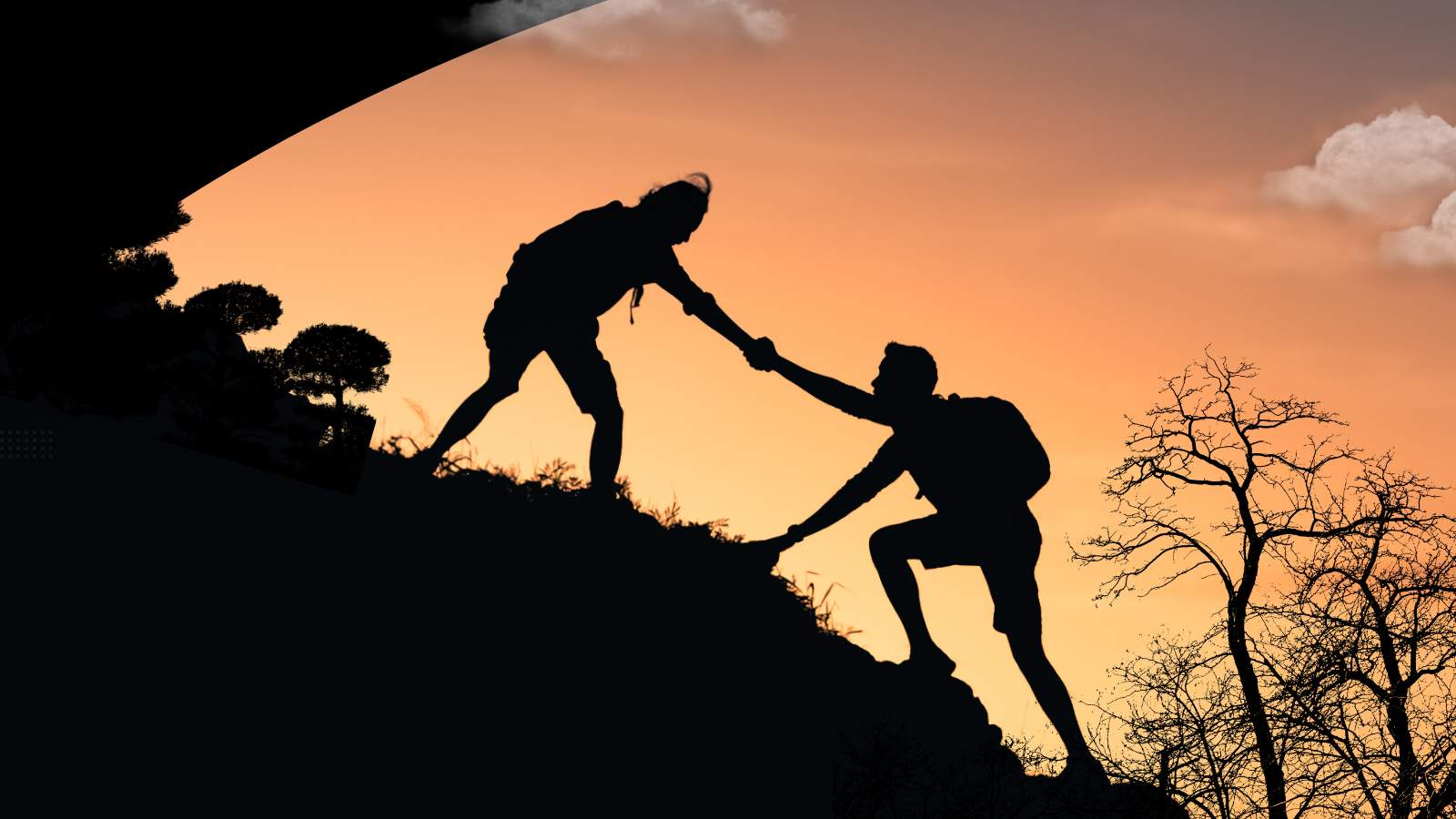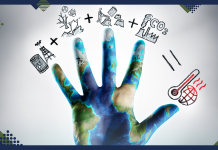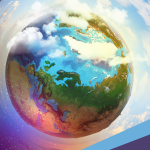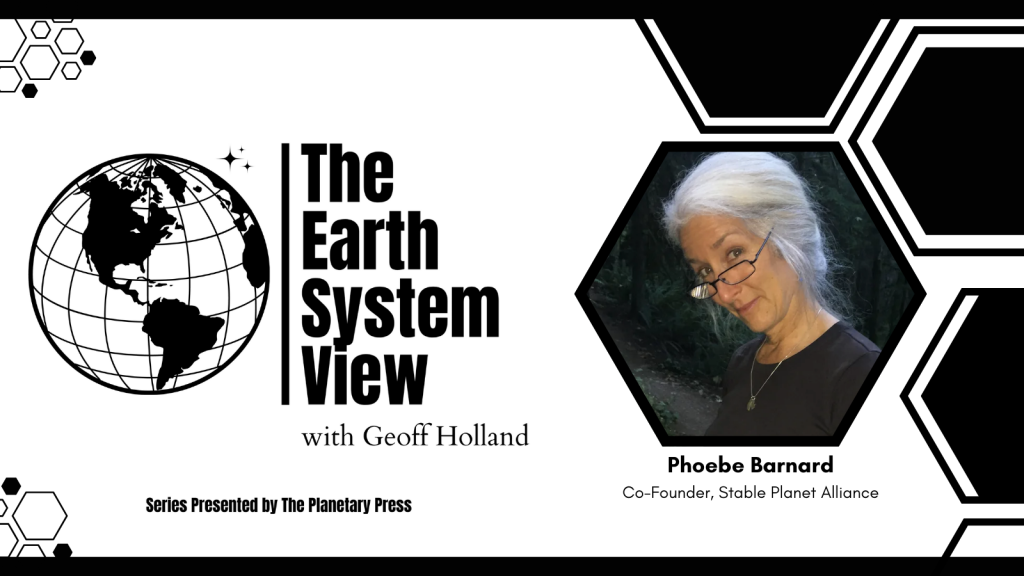
Professor of Conservation Biology and Environmental Futures at the University of Washington and Research Associate on climate and biodiversity vulnerability at the University of Cape Town, Phoebe Barnard, has been focused for decades on protecting the natural world from times of destabilizing change. She is a strategic advisor to the Global Evergreening Alliance on a campaign to accelerate the restoration of lands, climate, and oceans worldwide.
In Africa, she founded and led national biodiversity and climate science and strategy programs in both Namibia and South Africa and helped steer the Millennium Ecosystem Assessment. More recently, she was co-founder and CEO of the Stable Planet Alliance as well as Co-Founder and Convenor of the Global Restoration Collaborative alongside John D. Liu. These are global coalitions focused on reducing human cultural overshoot and restoring ecosystems, climate, and biodiversity.
Phoebe Barnard is also a filmmaker, working with her husband John Bowey on a four-part documentary series, The Climate Restorers, focused on restoring the climate and planet. She has been awarded a Fulbright Grant, a Society for Conservation Biology Distinguished Service Award and a Forbes Award for distinguished professional achievement.
Geoff Holland: For many millennia, humans have behaved callously, like we are above and superior to nature. Life on Earth is now seriously out-of-balance. Has the time come for humans to recognize that we are a part of nature, and that we have an obligation to each other and to future generations to be worthy caretakers of the only home we have?
Phoebe Barnard: I think it’s important to say we have a choice. We are now at the crossroads of humanity, and I think it’s important to be clear that we are also at the crossroads of civilization. Do we want to continue having a civilization? Of course, we can carry on as we’re continuing to do at a global scale with this really particularly predatory, extractive, or racist economy, or we can take the decision that we would like to survive.
We don’t wish to descend into chaos, anarchy, violence, and the collapse of civilization. It’s so important that people understand this. Carrying on as we are will not likely allow civilization to continue for more than another few decades, if we are lucky, maybe a century at the most. So, it’s up to us to decide. We can choose to reframe our relationship with nature and, indeed, with each other, or we can choose not to make a decision and to carry on as we are.
GH: A big part of your professional work and your advocacy has focused on nature and the crucial importance of restoring healthy biodiversity to our planet. How do our eating habits contribute to biodiversity loss, and what can we do about it?
PB: That’s a big, big question, and it’s got a big, big answer, but the fundamental of it is quite simple. We eat every day— all of us— and eating is one of the most important things in life. It forms our relationship with the planet. It’s one of the most intimate relationships that we have with nature. Therefore, it is one of the most impactful threats to biodiversity because there are now over eight billion of us.
Our global food system is the primary driver of biodiversity loss. Agriculture alone is the major identified threat to almost 90 percent of the species that are currently at risk of extinction. I think the statistics are that 28,000 species are currently at risk of extinction, and of those, 24,000 roughly are primarily threatened by land conversion for agriculture. It’s really important to put this in perspective because the global rate of species extinction today is orders of magnitude higher than it has been on average over the past 10 million years. In that time, we’ve had a human civilization that perhaps lasted about 12,000 years. Even during the time of the asteroid that caused the extinction of the dinosaurs— that’s the Cretaceous–Tertiary boundary, 66 million years ago— the extinction rates were not as high as they are now. So, land conversion to crops and pastures is the main driver.
But it’s not just land conversion. It’s also all of the chemical inputs that we have made to make agriculture function at scale, especially commercially profitable agriculture at scale. So, there are pesticides and herbicides. There’s enormous nutrient loss to aquatic ecosystems— to wetlands, watersheds, and rivers. All of this has had a profound and devastating impact on biodiversity. So, absolutely, we need to change our global food system with this in mind.
We’ve been treating the Earth, as the famous sociologist Eileen Crist says, “as a food pantry for humanity.” But the Earth is not put here as a food pantry. The Earth is not put here as a kind of recreation space for humanity. We have been privileged to use it and its bounty for our enjoyment, our recreation, and our sustenance. But it’s so important that we drop our self-centered look at the Earth and recognize that we are one— only one— of about roughly 10 million species on Earth, and that planet supports all of us. It is the life support system for all of us. Our actions— our very entitled, arrogant, profit-driven actions— have imperiled so many species as a result of all that.
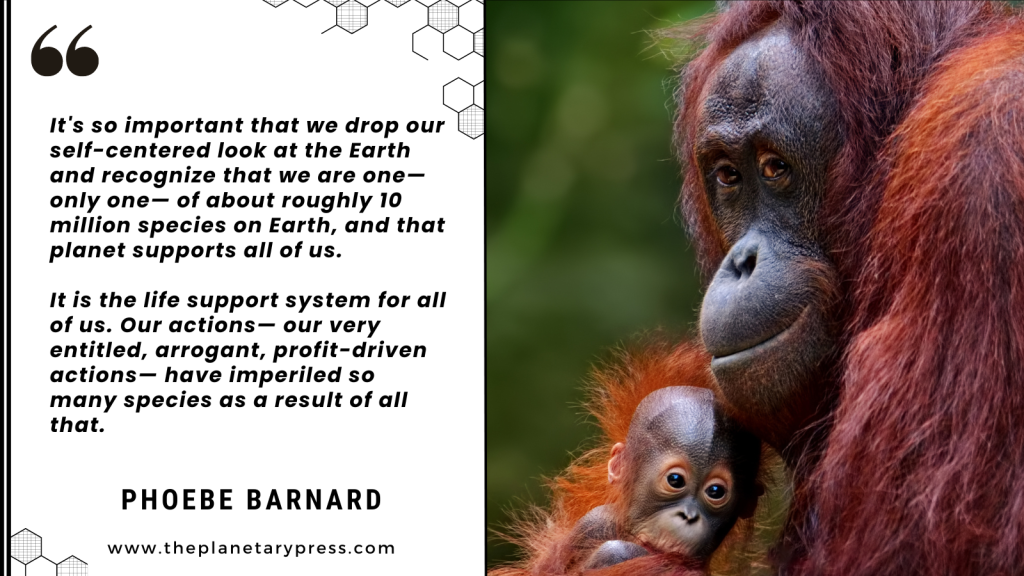
GH: Just as the human culture is enduring unprecedented risk from cultural division, the internet and the social media connect all the world’s people together as never before. How do we get past the incessant drone of misinformation coming from the old guard, and use this new cultural reality to bring humans everywhere together behind worthy common purpose?
PB: It comes down to the choice that we decide to make or the choice to fail to choose. I really believe these times call on all of us to be the very best people that we can be. We can choose, individually and collectively, to be the best. We can choose to be the most intentional, the most proactive, rather than reactive, or we can choose to be the worst, the most violent, the most spiteful, the most divisive, the most easily triggered. This is the most important choice we have right now. For all of us, every one of the eight billion people on this planet, this is the most important choice we have to make. Each country and each head of state should be facilitating these discussions and choices in the way they lead and in the public policies they and their governments pass.
The question you asked about cultural division and the internet, disinformation is a deliberate strategy to retain power, to gain power, to secure power at the expense of others. We need to be extremely wide awake to it. The University of Washington, where I teach, has a great course titled “Calling BS: Identifying Misinformation in the Age of the Internet” or something like that. We need to have that kind of resource, that kind of training for all of us because all of us are vulnerable to it. Particularly with AI and deep fake imagery, it’s increasingly hard even for the most mindful, the most intentional, the most intelligent, and experienced people to decipher what is disinformation and what are deep fakes.
So, this is real trouble, and I think it’s a curveball that many of us working in the planetary health space did not fully anticipate until five or six years ago. We need to be really wide awake, prepared, and ahead of the curve on this.
GH: For the longest time, the human culture marginalized women and denied them an equal voice. In recent decades, in many parts of the world, women have been claiming their equal rights, and their place as leaders at all levels of society. Can women be a prime constituency in our cultural evolution to a better way of being human?
PB: I would say that we have always been throughout human history, but that the time for female leadership— and I would say not just female leadership but a more feminine leadership, which can be practiced by anybody, is needed now more than ever. There’s plenty of evidence that women, and for that matter, Indigenous cultures and youth leaders, are really particularly well positioned now to lead humanity out of its mess.
Not to the exclusion of men in any way. I do have to say I’ve been really privileged to work both with incredibly talented men and incredibly talented women, and I want to foster a culture where all of us feel that we have a role to play and a really strong sense of purpose, individually and collectively, to make this civilizational shift happen. Because that is what we’re talking about with the crossroads of civilization and the crossroads of humanity. It is a civilizational shift.
I’ve been very lucky to be increasingly involved over the last, I suppose, 20 years in fostering women’s leadership, mentoring young women, particularly in Africa, but globally, in groups like the Young Women Conservation Biologists Group of the Society for Conservation Biology, a global community of biodiversity scientists and practitioners to help grow up a cadre of really confident, warm, visionary, creative, scientifically well-educated women. I also sit in something called the Boussara Circle. Boussara is a Kiswahili word. I think it’s a good word, actually an Arabic word for wisdom. The Boussara Circle is a kind of elder women’s leadership group.
There’s also a really powerful, important women in science leadership program on which I serve, called Homeward Bound— I was lucky to be one of the first alumni of that program. The principle of that program is that one of the best ways to sustainability is to increase the number, profile, strategic sense, and visibility of women in leadership stepping up to the leadership tables of the world. And particularly women with backgrounds in STEM, to be able to shift how humanity can change.
Finally, I would mention She Changes Climate, a global network of women working for change through a focus on climate as an existential threat to us. We’re talking about significant social change in the last 50 years. It has already been faster than almost any other time in human history. The journalist Fareed Zakaria on CNN recently wrote a book called The Age of Revolutions. Essentially, the key takeaway is that social change, when it happens fast, usually causes a backlash from the people who feel threatened by that change, from the people who have held the power and the purse strings, who feel that they are losing that power. So, we’ve got to be very strategic about how we decide to lead. They need to be fostering these conversations in their countries, not just sleepwalking into disaster, but intentionally and proactively going about the business of civilizational shift.
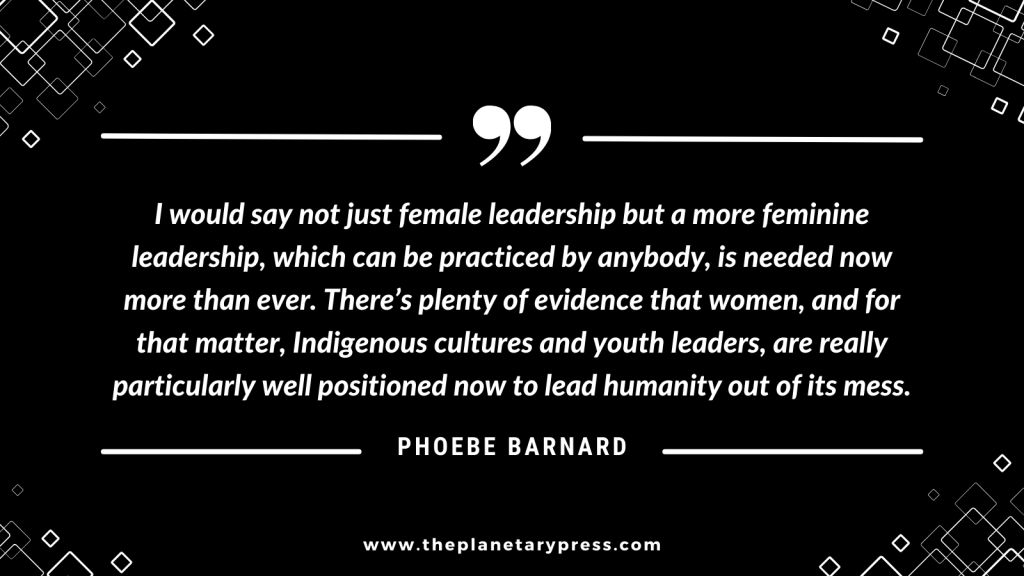
GH: There is no doubt that human life has come to a turning point like none ever seen before. What would you say our world needs most at this moment to bring all of humanity – all genders, ethnicities, and nationalities – all together behind a fundamental course correction, a kind cultural renewal that leads to the best kind of human future?
PB: We’re starting the conversation about how to do that. I was lucky in my youth when I joined the government of Namibia, or actually even before then, when I was a young lecturer at the University of Namibia, training young professionals and teaching biology, conservation, and science. We were lucky to have an independence-era process called Vision 2030 that basically asked all of us in the country the following question: ‘Okay, we’ve just gotten our independence from South Africa. What kind of a society do we want to have from now on in, and how are we going to get there?’
There are two parts to that question— the what and the how. Both of them are so important, and a similar process was gone through by South Africa in its post-apartheid democratic transition. I was also lucky to be there pretty much close to that time too, and so I realized, not necessarily at the time but soon thereafter, that these two opportunities of soul searching and visioning and collective strategizing about the kind of society that we wanted, and this is something that all of us as humans globally need to do. So, I would say the conversation is most important.
A second thing that I would cite as critical, what the world needs most at this moment, is restraint. Humanity has this discouraging tendency to find differences rather than universals and commonalities. We are quick to disagree, bicker, or finger-point when what we actually need right now is to restrain ourselves and adopt a process of intentional respect and understanding that we may not agree but that we need to give people space for their opinion, to honor it, respect it, and weigh it up in the whole dialogue moving forward.
Then I would say we need a better balance between the different contributions of the communities to our society. Faith communities have a big role to play right now but so do the science and technological community, the business and economic community, the nonprofits, the social and environmental protection and service communities, and the universities. Everybody has a really important role to play here. That kind of cultural renewal cannot be led primarily by people like me, who come from a science background, except for those people who, and I, to some extent, I’m one of them, realize that a left-brain approach to the crossroads of humanity is not going to get us to the right place. It’s a part of the solution, but it can’t lead the process.
You know the quote that’s often attributed, I think, correctly to Einstein, that we can’t solve our problems with the same mindset that created it? I’m not saying that science has created our problems, but I will say that an analytical, reductionist, self-interested mindset of profiteering is not that different from science, and we need to embrace a much more holistic approach to cultural renewal that will get us through to a kinder, wiser, more humble, and much more sustainable civilization. It may well be a much smaller civilization. We are at such a poor starting point right now, and it’s important to be really blunt about this. We have media disinformation, as you pointed out. We have division. We have tribalism. We have political self-interest, and we have a global economy, all of which are pushing in the wrong direction. So, we need that conversation to course correct.
GH: You have joined other leading voices in standing behind a big cultural idea called the Earth System Treaty. Can you talk about this treaty and about why you believe it can be a beacon of common purpose that all our world’s people can stand behind?
PB: In terms of the Earth System Treaty, I believe it and similar initiatives have been absolutely crucial to chart a kind of Magna Carta Bill of Rights, a Constitution for humanity on this planet going forward. It’s important to have big, bold, ambitious cultural ideas that can underpin the conversation that I’m talking about. So, the Earth System Treaty is particularly detailed, and it rests on ten key threats. I think the genesis of that treaty was quite right in pointing out, as I’ve tried to point out to people over the years, that these threats are just multi-dimensional symptoms of a root cause, which, in my language, I describe as the problem of ecological overshoot, driven by our numbers, our appetites. In other words, our population, our consumption, and our entitled human supremacist mindsets.
Human supremacy may be a concept that people find confronting, and you know, supremacism is an ugly word. We recognize it as ugly, whether it’s racial supremacy, gender supremacy, or cultural supremacy. It’s an ugly word because it drives a stake right into the heart of the division and the inequality of our world. I use it intentionally to remind us all that we are just one of millions of species, and we need to stop acting as though we are the center of the universe, like the Earth was the center of the solar system. It’s not, it’s the sun. Our planet should be the center only of our universe, with all the other species that inhabit it. At this point, we make sure that we are the center of the universe by choosing to be dominant. We may be destructive. That does not make us the best. It does not make us wisest.
I do believe that such a treaty needs to be driven as a matter of urgency through a political process that gives it legal legitimacy. But first and foremost, the Earth System Treaty needs to be talked about and understood very deliberately. The fundamental thing is about a relationship with nature and a relationship with the very fundamental nature of those relationships.
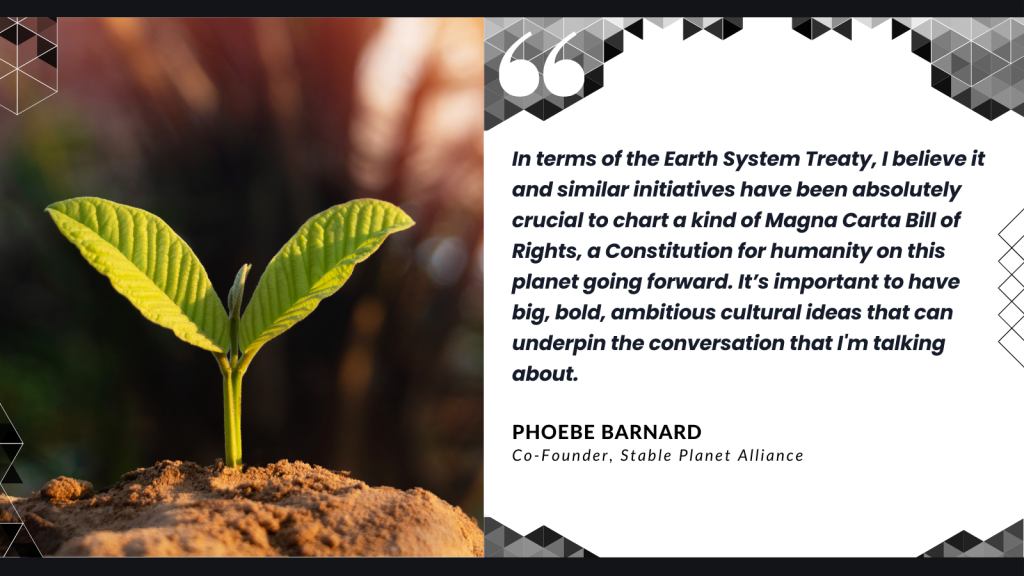
GH: The late comedian Groucho Marx said, “Politics is the art of looking for trouble, finding it everywhere, diagnosing it incorrectly, and applying the wrong remedies.” If enough people get behind an Earth System Treaty, can that power the kind of common-purpose political remedy that amounts to transcendent cultural change?
PB: Of course it can, and we must make sure that it does. I take heart from a number of citizen-led, community-led initiatives around the world. One of the first that comes to mind is Britain’s Climate Majority Project, where people have taken charge to get behind the values of something like the Earth System Treaty that is powering transcendent cultural change that is taking back the agency that people sometimes feel they’ve lost, even in democracies. Remember, democracies are probably the ultimate and optimal way of trying to give power back to the people, but nonetheless, in that system change— that cultural change and political change— we’ve seen that the people who feel their power has been lost through that have tried to subvert it. That’s nowhere more obvious right now than in the United States of America.
So, we have to be firm about both keeping our confidence in our own agency, building up tolerant communities that are able to speak with one voice and not dissolve into bickering and finger-pointing, and being able to stand up to the corporations, the autocrats, and other bodies and groups who feel the same way. They don’t stand to benefit from the future. We have a huge risk, a huge threat of autocracy right now, and disinformation, as we’ve discussed. This will be a messy time, and we have to prepare ourselves for that. At the same time, we will not get through it at all if we are nihilistic, cynical, despairing, or paralyzed by our own anxiety. So, it’s incumbent upon each of us to find the power, to find the community, to give us the strength to move forward.
Stay tuned for more of The Earth System View series!
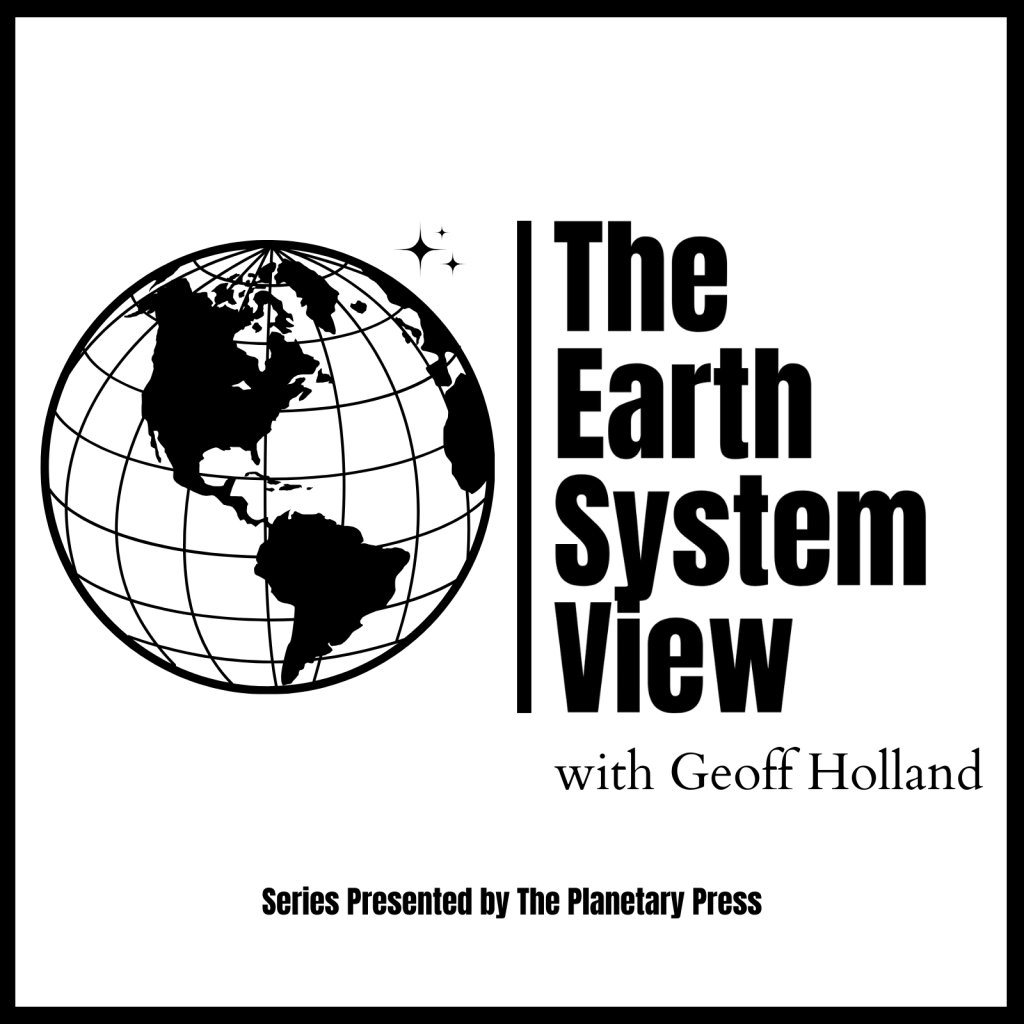
Hosted by author and veteran Stanford MAHB journalist Geoff Holland, The Earth System View explores the progressive idea of an Earth System Treaty as a solution to our planetary challenges.
Related Links:
https://www.theclimaterestorers.com/
https://en.wikipedia.org/wiki/Phoebe_Barnard
https://www.stableplanetalliance.org
https://www.stableplanetalliance.org/restoration
https://www.evergreening.org/greenuptocooldown
https://www.uwb.edu/ias/faculty-and-staff/phoebe-barnard
https://acdi.uct.ac.za/our-team
https://science.uct.ac.za/fitzpatrick/phoebe-barnard

